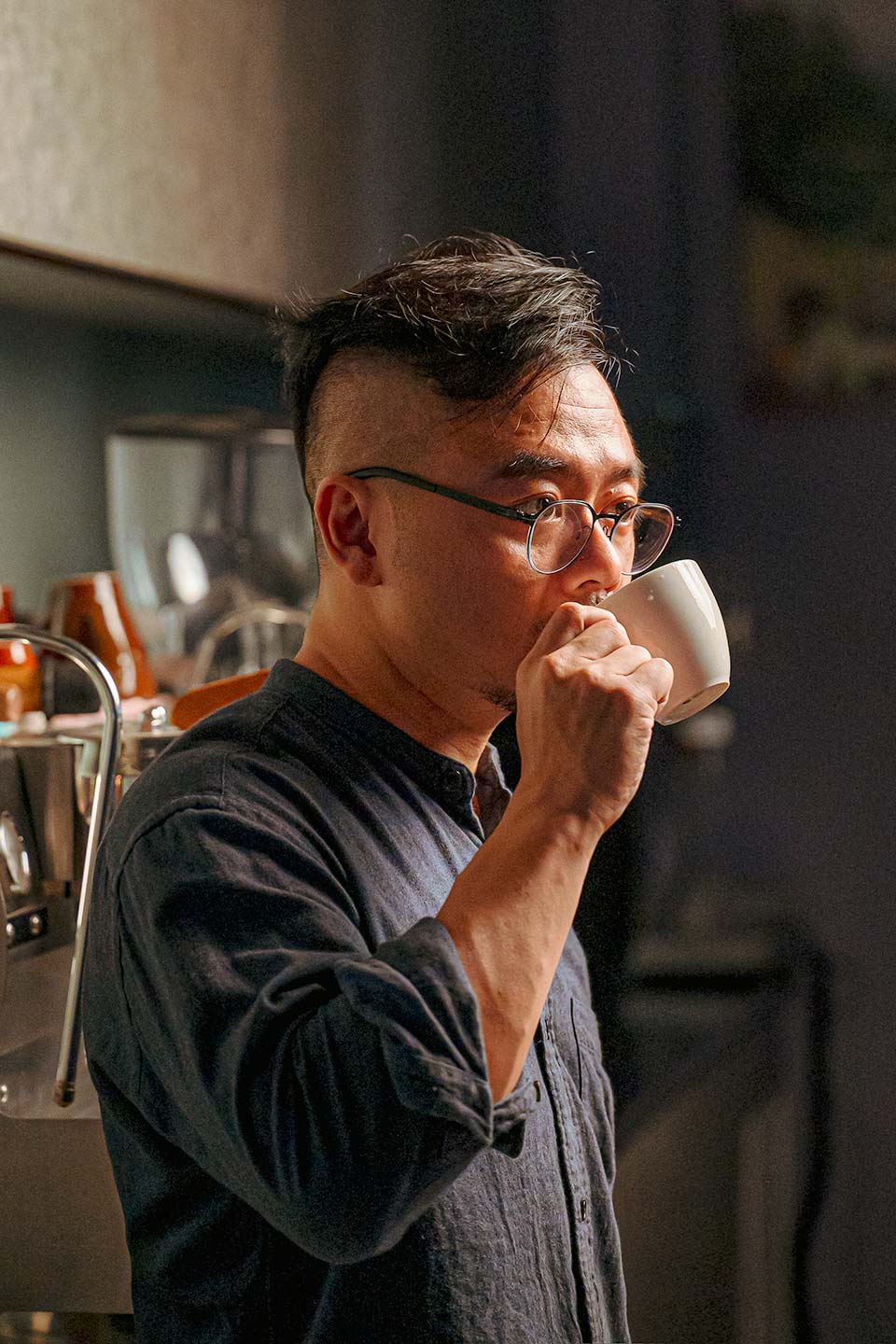
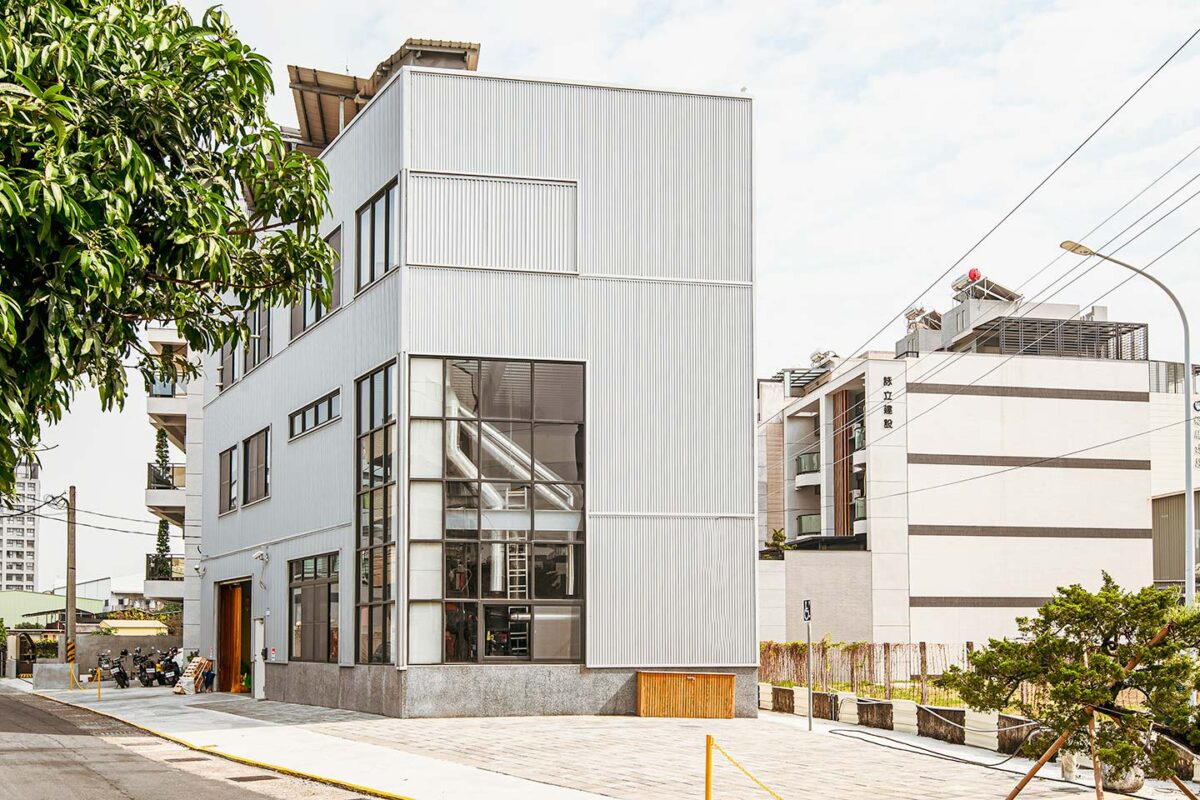
Located in the southern Taiwanese city of Kaohsiung, what appears to be a four-story office building from the outside is home to a coffee roastery affectionately nicknamed the “Coffee Bullet.” This one-stop shop for coffee production houses three coffee roasters of different sizes and makes, classrooms for coffee education complete with six sample roasters, and a warehouse that can store up to 15 tons of green beans.
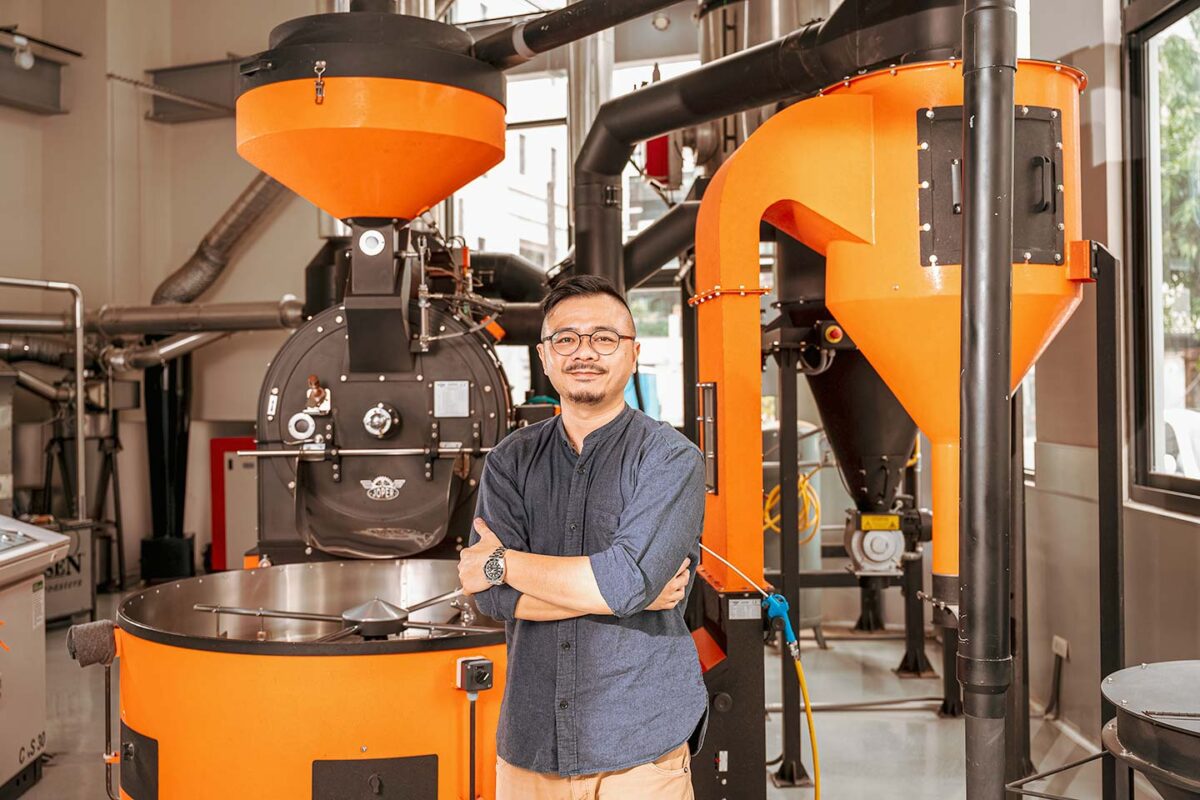
The man behind this impressive roastery is none other than the winner of the 2014 World Coffee Roasting Championship (WCRC), Jacky Lai. In addition to operating Coffee Bullet and doing business as a coffee wholesaler, he’s also launched six cafés, Coffee Wake Up and five branches of his Oh! Café chain throughout Taiwan. In addition to these endeavors, he hosts the Takao International Coffee Competition, one of the biggest contests of its kind worldwide. Although his 20 years in the coffee industry have seen him achieve one success after another, Jacky’s drive to reach new heights is still as strong as ever.

The Freedom to Make Mistakes
Management styles have changed considerably throughout the years. Philosophies have run the gamut from the top-down style of senior management solely issuing orders and demanding quotas be met, to bottom-up concepts that consider the input of all members. As the allocation of power continues to flatten out and a stronger emphasis is placed on the opinions of individual workers, management practices that foster a personal sense of ownership in employees are quickly becoming the norm.
Jacky is a subscriber to this employee-led philosophy. He considers the managers of his company’s cafés to be their owners and gives them ample freedom to operate as they please. Not only are they allowed to hire and determine the salaries of their own staff, but they also have the ability to handle their own marketing and customer satisfaction policies. Managers are further given the opportunity to have their voices heard in the overall decision-making process by becoming shareholders not only of their cafés, but other branches as well.
Jacky explains, “I think of myself as the biggest investor in several small companies, someone who supports their individual business ventures. Beyond a few exceptions, the managers are fully allowed to take the wheel. This limits frustration with the company and helps to keep the bonds between teams strong. Of course, since it takes a while for us to get to know and understand each other, there is a condition that managers must have held the position for at least two years before they’re given the opportunity to become shareholders.”
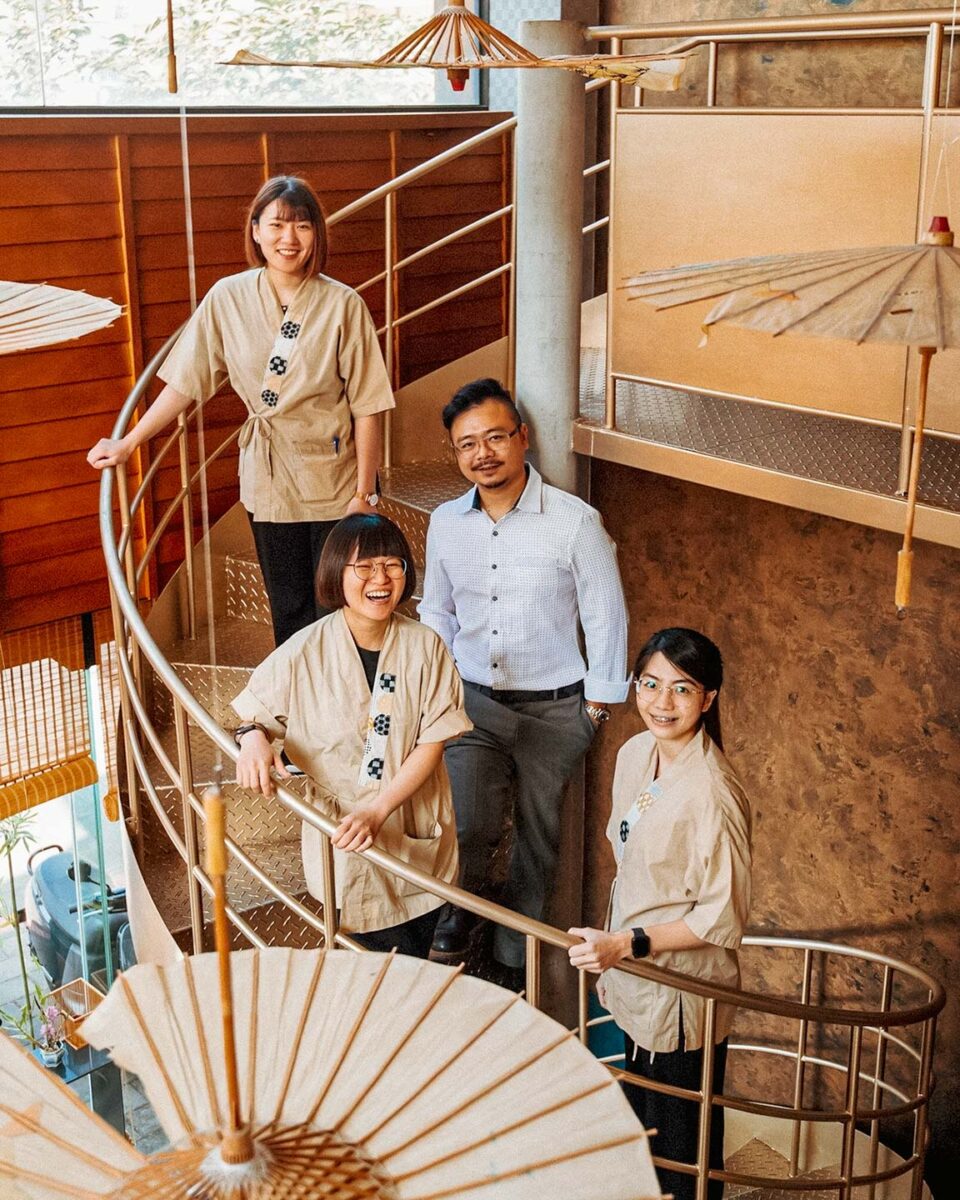
But these freedoms require Jacky’s employees to cultivate a strong sense of personal responsibility. They must learn to be self-reliant and face any challenges head-on. He often tells his staff, “If you’re a wolf, seize your prey and bring it home with you. If you’re a sheep, hone the art of escaping unscathed.”
“My wolves usually work in corporate positions, chasing dreams of finding success in management or sales. On the other hand, my sheep are responsible for offering amazing service as café staff and the like. They have different career goals, use different lingo, and see things from completely different angles, but both must keep improving their skills to stay at the top of their game.
Honestly, I don’t believe money is the biggest boon a superior can give his staff, it’s actually the experience of being allowed to fail. I’m usually not quick to point out or correct mistakes when I see my staff making them. I’ll let them mull over the issue for a day or two before bringing it up, so they have time to come up with their own ideas on how to improve the situation.”
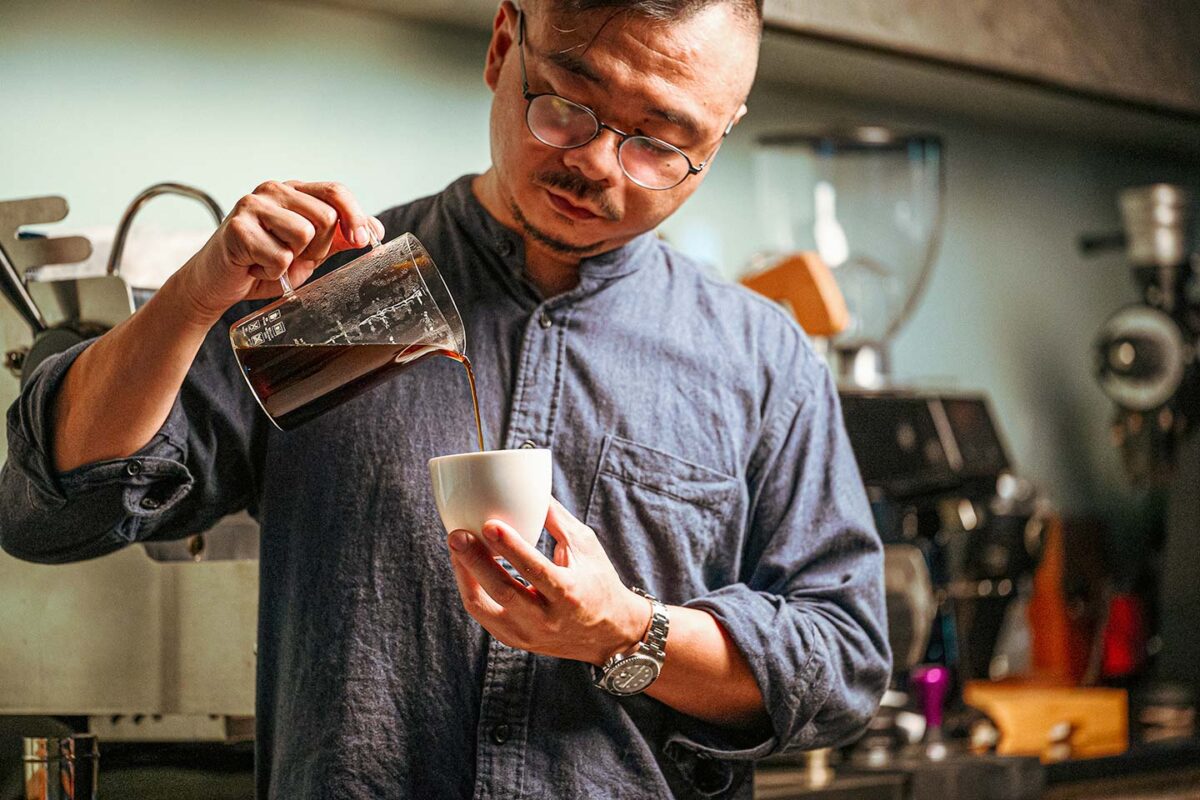
A surprisingly large number of Jacky’s staff of around 20 are newcomers to the coffee industry. Some of his current employees are originally from medical, architectural, communications, and even linguistic backgrounds. For him, hiring decisions all come down to a candidate’s love of coffee. In fact, he gives them several cups during their interview just so he can gauge their reaction.
“I can tell as soon as they try it. Coffee lovers savor that first sip with a look of unmistakable bliss. People who are looking just to make a living or get rich aren’t a good fit for my company.
It really doesn’t matter whether they have experience in the coffee industry when they’re hired. Staff who have transferred from other fields bring a breath of fresh air to the company. I’m currently roasting with a former radiologist, and in addition to looking at things from a completely different perspective than me, I’m always fascinated to hear him talking about coffee from a scientific point of view.”

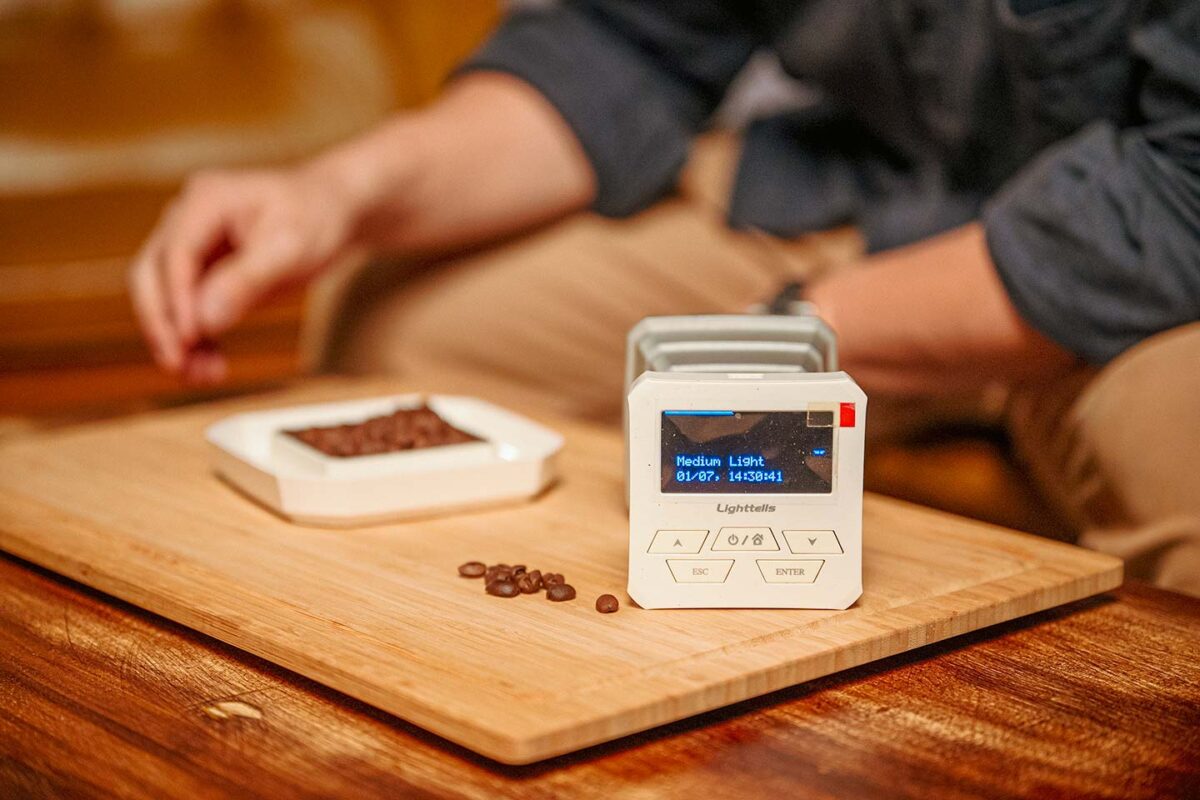
Working in the coffee Industry is only for foolish romantics
Jacky knew he wanted to open his own café as soon as he entered the coffee industry when he was around 20 years old. In 2012, he achieved this goal by opening Coffee Wake Up in Kaohsiung. In the time that led up to starting his own business, he spent 10 years working as a barista and gained valuable experience participating in the launch of several new cafés as an employee. He also spent about a month in the United States, visiting around 40 to 50 cafés in the greater New York City area before he took the plunge of becoming a business owner.
“I’d be lying if I said I was 100% ready to launch a café at the time, but no one can swim like a pro without dipping a toe in the water first. I didn’t know if I’d be successful or not, but I wanted to follow my heart. I knew that if I gave up on my dream, I’d absolutely regret it down the line.”
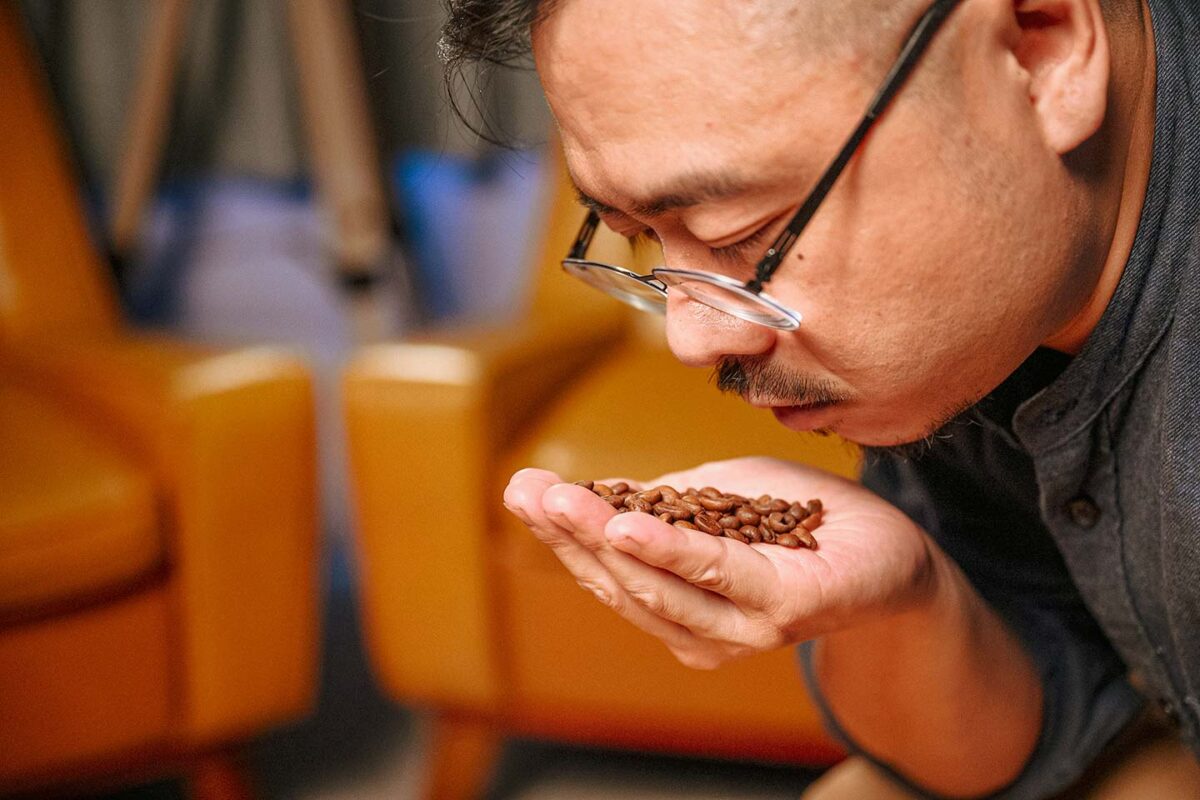
Jacky was so unsure of his ability to run his new café, that he didn’t even register it as a business. Instead, he threw himself head-first into work, worried that each day could be Coffee Wake Up’s last. He was plagued by thoughts like, “What if I’m forced to close up next week and I can never serve my customers again?” Perhaps this overwhelming sense of urgency worked, because within two years of starting his first business, Jacky found himself the successful owner of three cafés.
“I’ve always been focused on the smallest details. Back when we first started, my employees and I put a lot of effort into cleaning the floors, crouching down so that we could see every stain or speck of dirt. It’s going to be a bumpy road to success if you can’t seem to spot the little things that others usually overlook. Even now, I mop the floor of the roastery from corner to corner. I’m sure my staff think, ‘this guy must really love cleaning the floors,’ but what I’m trying to do is teach them the importance of being detail oriented.”
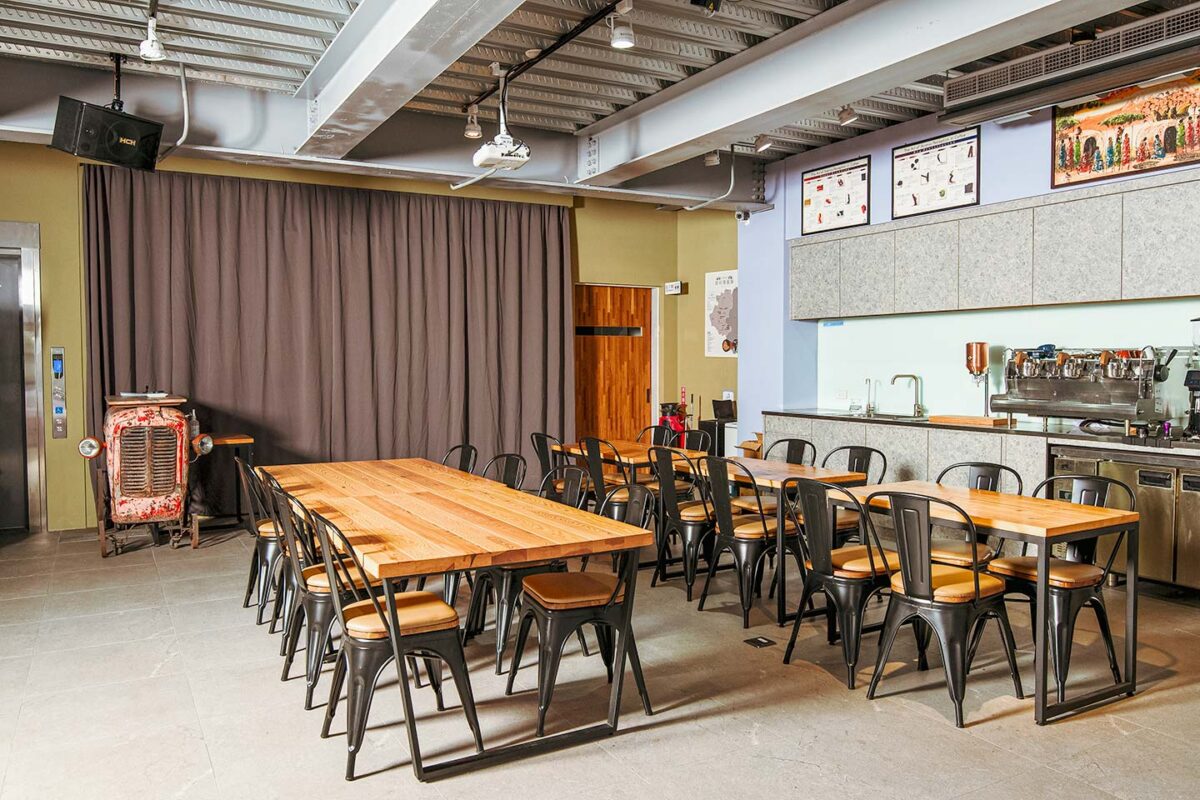
After winning the World Coffee Roasting Championship in 2014, Jacky’s new celebrity further propelled the success of his business ventures, and he now operates six cafés located throughout Taiwan. However, Jacky doesn’t see this expansion as any excuse for a decline in the quality of customer service his establishments offer. He remains adamant that his staff always go the extra mile when it comes to providing hospitality.
“When customers visit a café, it’s not only the coffee that makes or breaks their experience. Every aspect of the café, from the atmosphere to the quality of service influences their opinion. Negative impressions far outweigh positive ones, so having staff who take a half-baked attitude toward customer service can be incredibly damaging to the overall brand.”
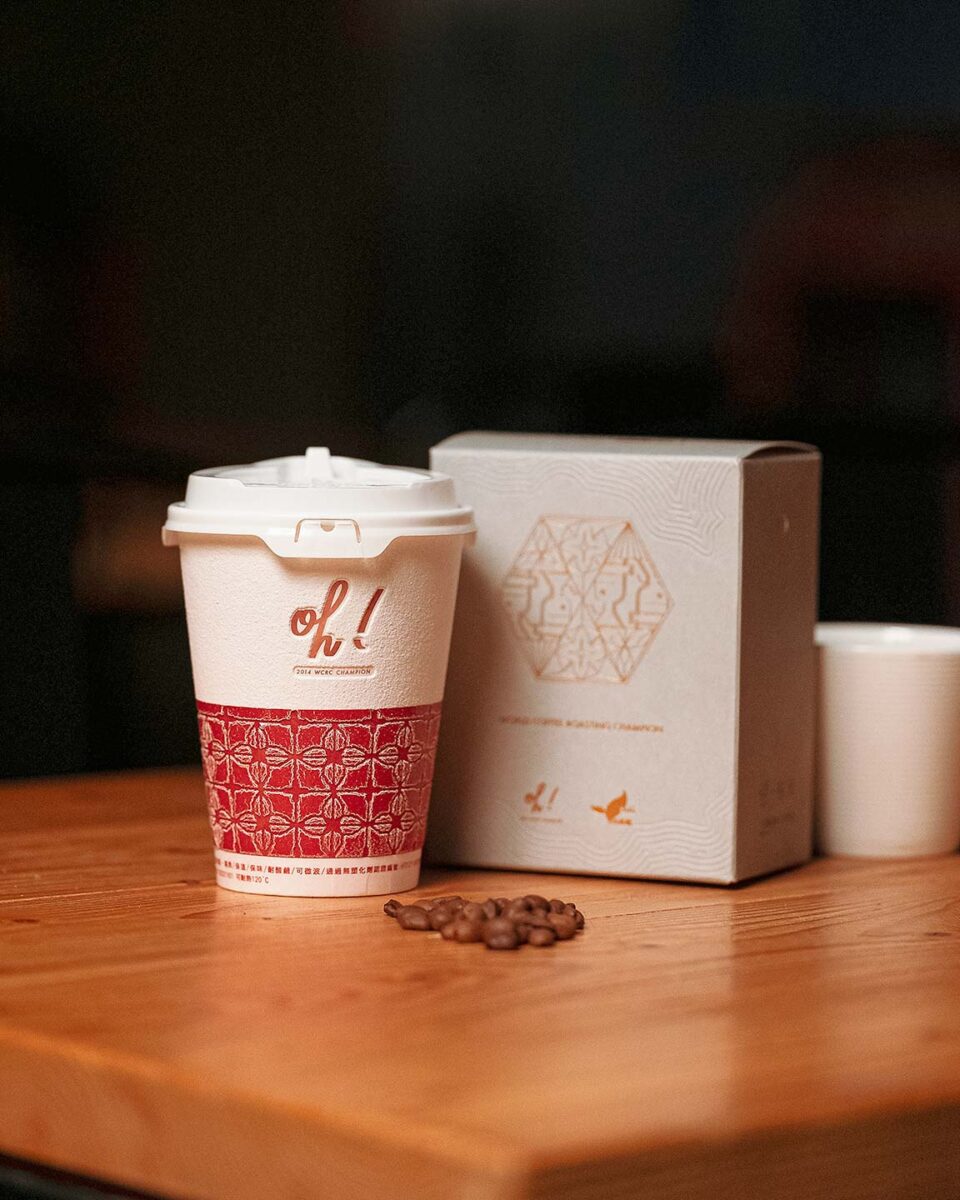
Including part-time jobs while he was in college, Jacky has been entrenched in the coffee industry for over 20 years. Even when the meager paychecks he received as a student made him fully aware that working with coffee was likely not the most lucrative career path, he still found himself unwilling to step away.
“To be honest, my resolve did shake a bit after talking to someone who was making big money selling real estate. But I wondered if that would truly make me happy. Was it worth negating all the blood, sweat, and tears I’d shed to make it this far? After some soul searching, I decided that I was already in the place where I belonged.
It’s my belief that the only people who can survive in the coffee industry are those who cast everything else aside and focus on providing delicious coffee and excellent customer service. You don’t start working with coffee unless you’re a romantic, and you certainly don’t stay in the industry unless you’re a fool. That’s just the reality of it.”

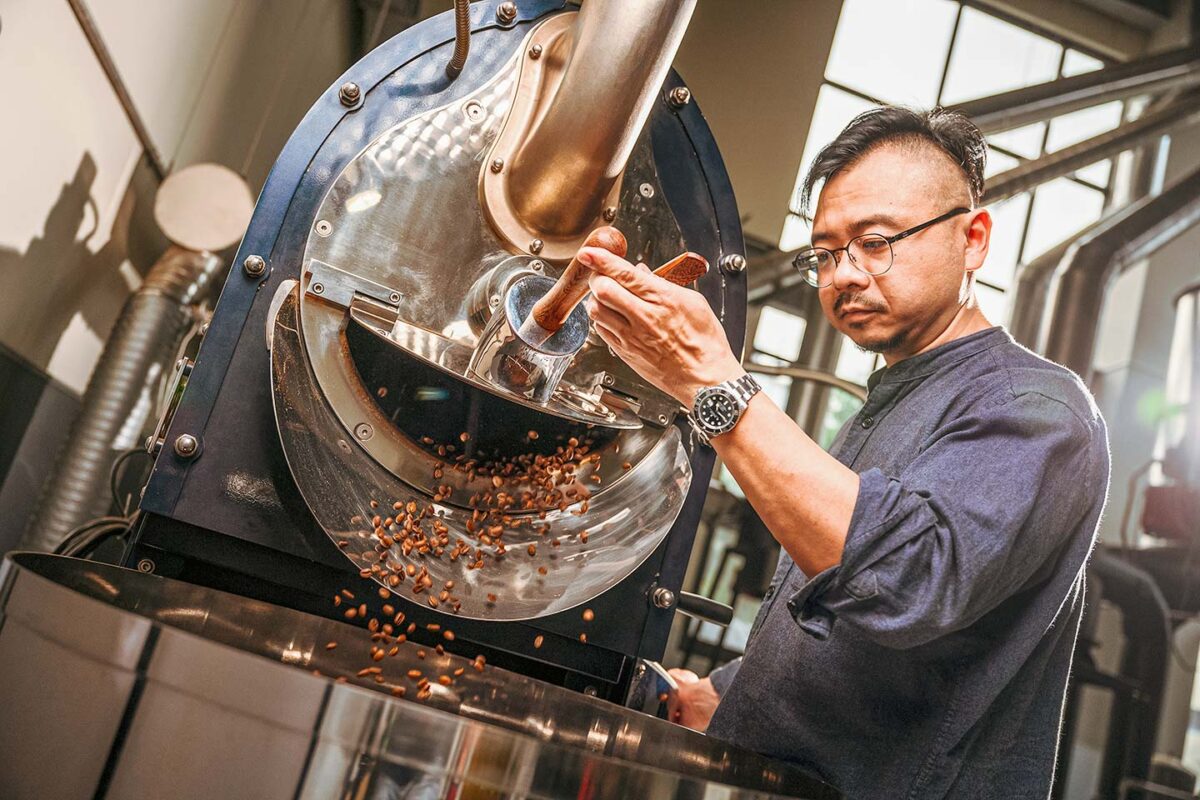
Prepare to go unnoticed unless you make some noise
It was around 2010, ten years into his career as a barista, that Jacky first found himself captivated by the art of coffee roasting. After his triumphant victory in 2014, he went on to become a judge for the WCRC as well as several other roasting competitions. These experiences opened his eyes to the necessity of coffee roasting education for up-and-coming professionals. As another facet of his many business ventures, he hosts seminars where participants can learn about coffee roasting based on the international standards set by the Specialty Coffee Association.

“Roasters aren’t that different from makeup artists. Like coffee producers, we play an important role in determining what kind of flavor a coffee is going to have. It’s like how an actor applies makeup to emphasize the aspects of his different characters, or even change his appearance from scene to scene. By adjusting the roasting method to draw out or emphasize certain flavors from the raw beans, we’re essentially giving them a makeover to satisfy the customer’s needs.
When you’re standing on the frontlines of the manufacturing process, there’s a lot of room for creative expression. Because of how much influence we have over the final product, from choosing beans to targeting specific consumers to determining a flavor profile, it’s like being the director of our own coffee-related show. But since most of what roasters do takes place out of sight and out of mind, there’s not much awareness of the important role we play.”
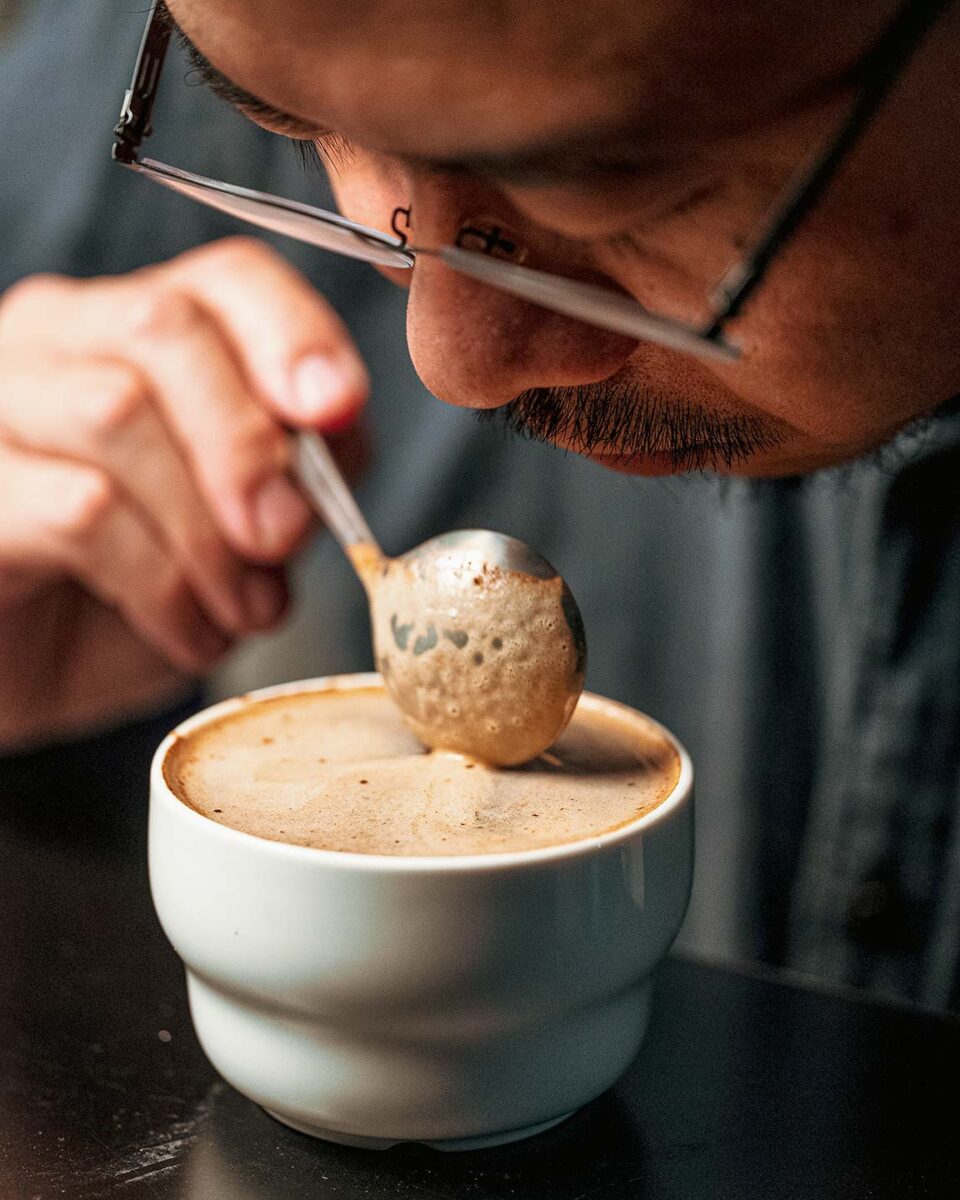
Hoping to bring the importance of coffee roasting into the public eye, Jacky started holding the biannual Takao International Coffee Competition in Kaohsiung from 2016. The winner of the competition receives a Harley-Davidson motorcycle, a Giesen coffee roaster, and around 300,000 dollars in prize money, making it one of the largest and most luxurious roasting competitions in the world. In addition to the fabulous grand prize, the top 16 participants are also awarded winnings that total around 850,000 dollars.
“You can reach your goal quickly by striking out on your own, but if you’re traveling as a group, you can cover much further distances. The specialty coffee industry is still so small. There’s no reason for us to try and steal each other’s customers or wage a war of attrition with fellow roasteries.
In Taiwan, we often say, ‘you must make noise if you want to be seen.’ My hope is that by promoting all the work that goes into roasting coffee, consumers will understand that it’s not just a simple process. That the extra 40 to 70 cents per cup they have to pay is worth experiencing something truly delicious. But no one is going to come to that realization if we aren’t proactive. That’s why I’ve been trying to draw more attention to the industry.”

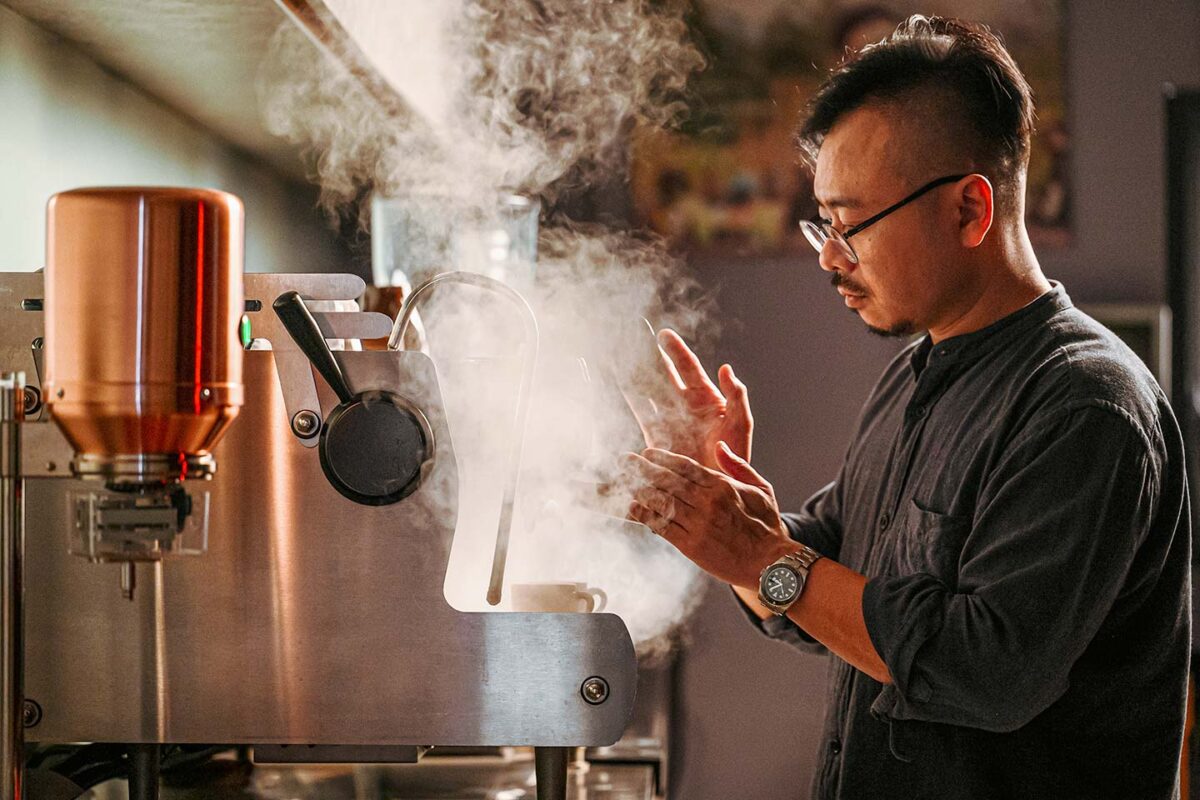
Carving one’s path is a personal journey
Before launching his own café, Jacky had been heavily involved in the development of several coffee shops located in Taipei, Taichung, and Tainan. It was for this reason that he immediately ruled those cities out as locations for his new business venture. Rather than stealing away customers from his previous employer, he wanted to find a place where he could start over from scratch and rely only on his talent to succeed. After much deliberation, he finally settled on Kaohsiung.
Jacky’s famous saying to his employees isn’t just lip service. In fact, he’s the perfect example of following his own advice. He chased after his dream like a ravenous wolf, seizing the opportunity to start his own business and never letting go until it was fully in his grasp.
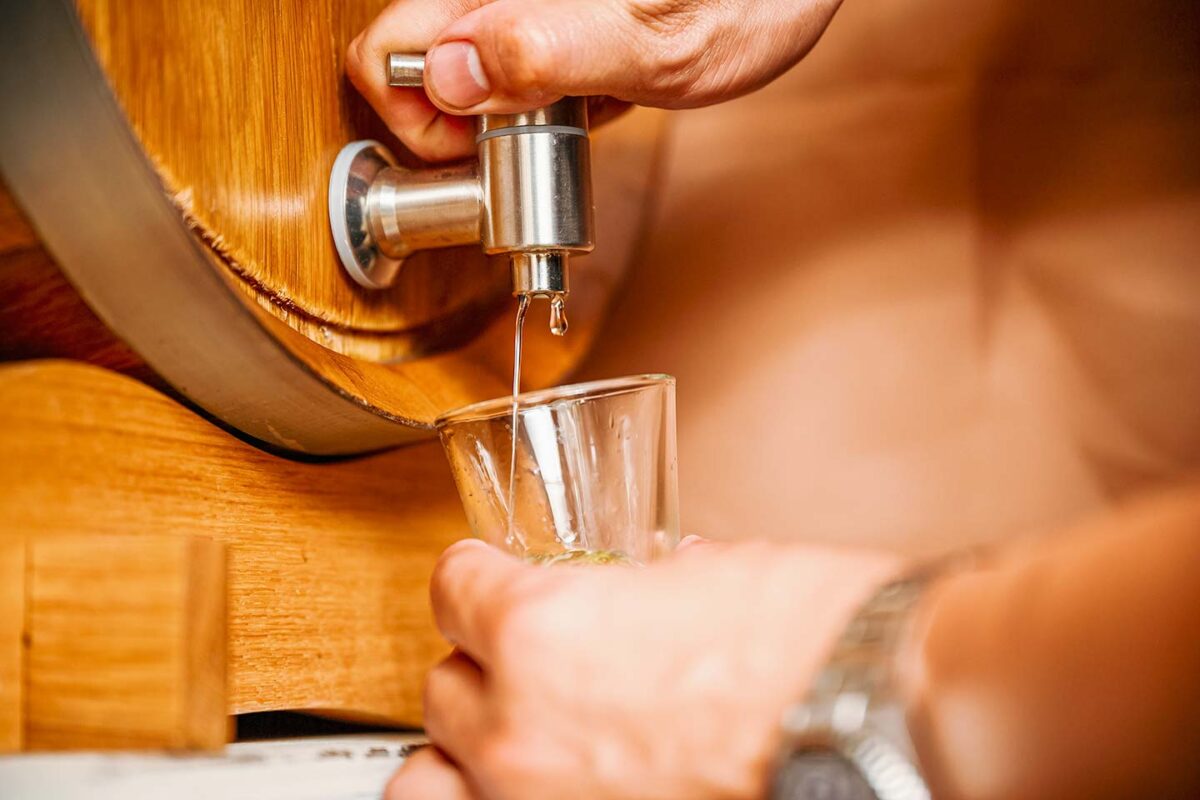
For about five years in his 20s, Jacky worked with Taiwanese coffee producers in addition to his barista job. Even now, he purchases original lots of coffee beans from Taiwan and Ethiopia that have been processed using a unique method he jointly developed with the producers themselves. His passion for researching and discovering new flavors has even led him to start brewing sake at the roastery.
“Anaerobic fermentation is a processing method that has recently taken the coffee industry by storm. It’s similar to sake brewing since both methods use anaerobic bacteria and no oxygen exposure to create the final product. It’s been eye-opening to see how knowledge of the flavors produced by bacterial fungi and rice malt can be applied to fermenting coffee cherries.”
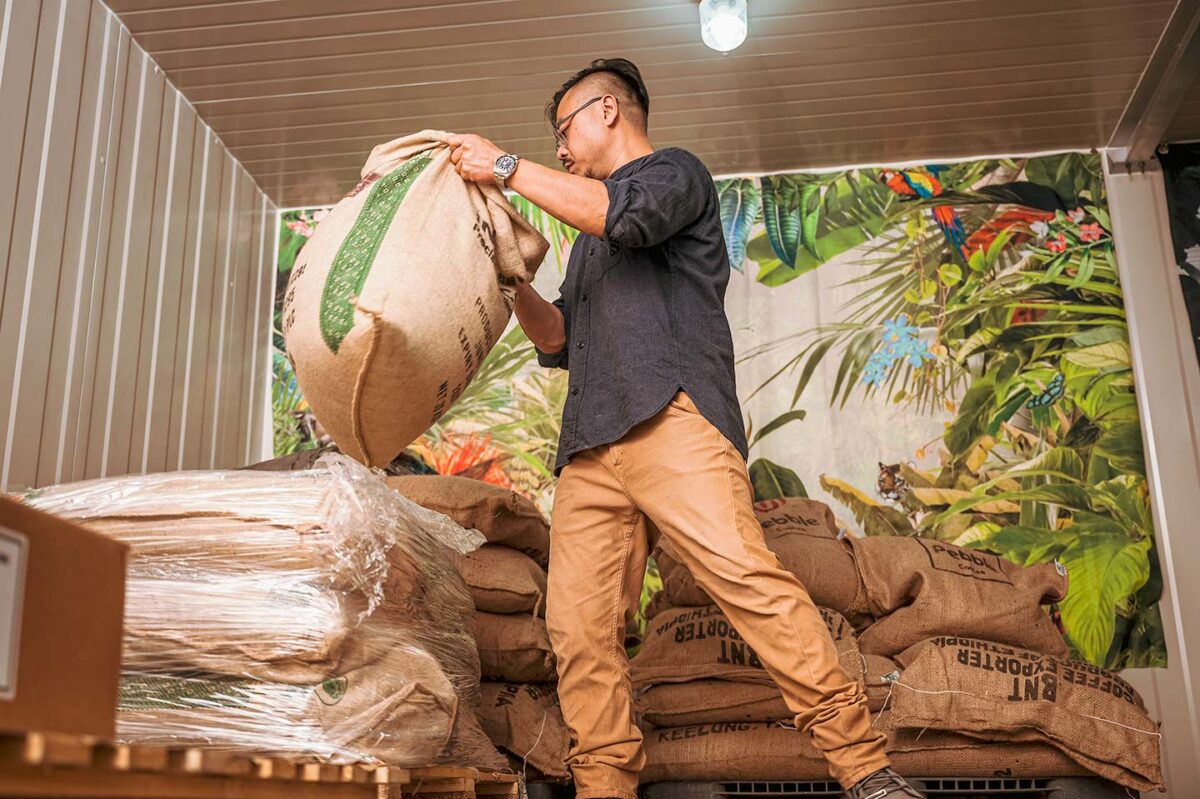
Although he’s constantly on the go at work, Jacky’s proactive lifestyle doesn’t stop once he’s off the clock. No matter how busy he gets, he still finds time to cook dinner for his family at night.
“I always tell my kids they’ve got only two choices when it comes to their future employment – start up a business or go into sales. Both options require you to rely on your own hard work to produce results. Not only is the amount of income you make directly correlated to your ability, but it’s the fastest way to reach your personal goals.”
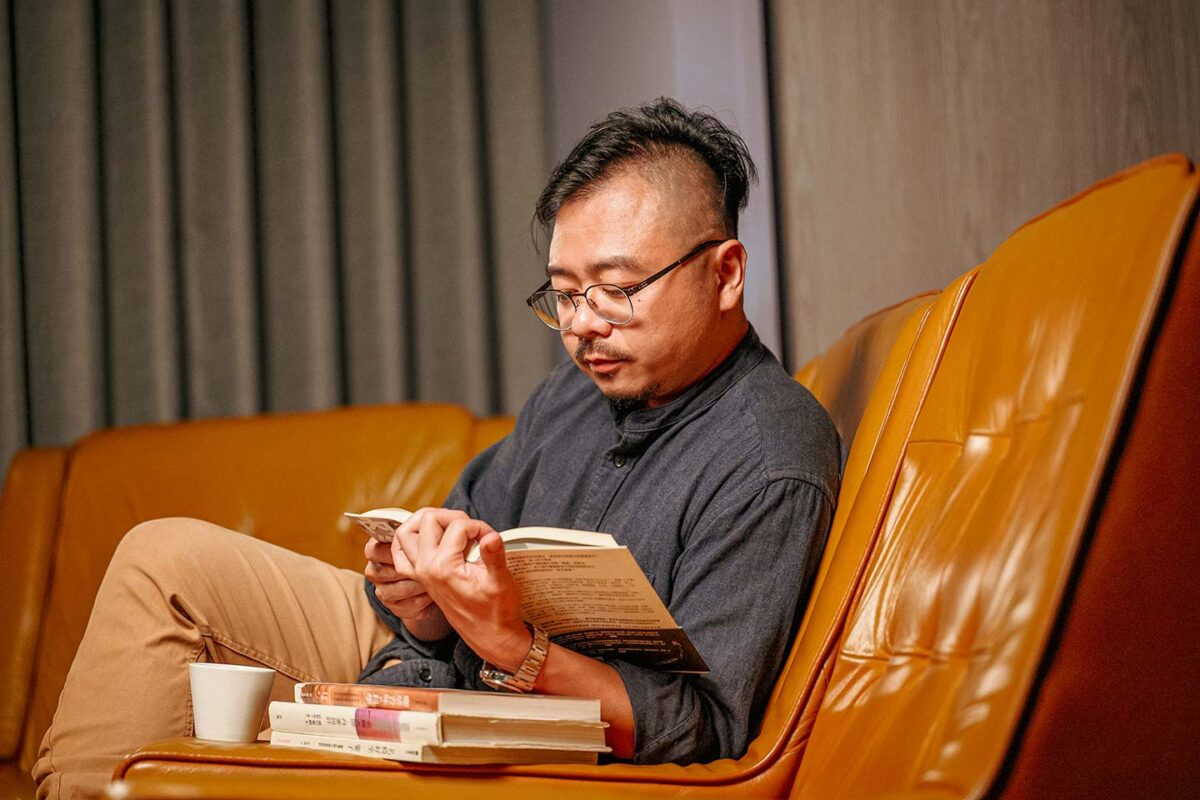
When Jacky and his employees go out on the town, it’s practically a tradition for them to drink until at least one person is completely wasted. Those who aren’t participating in the contest support their colleagues by cheering them on, and everyone looks forward to seeing who will be the last one standing during these drinking battle royales. In fact, friendly competition seems to be a way of life in Taiwan.
“Children here are expected to prove their abilities from a young age. I believe that competing with one another is an excellent way for them to say, ‘look at what I can do.’ When everyone is held to the same clear cut rules and standards, it all comes down to who has the talent to come out on top. To me, competition can help validate someone’s identity by giving them the opportunity to have their strengths recognized by others.
I’m at the point where I now have a comfortable lifestyle, but that doesn’t mean I’ve got any intention of slowing down. I’m not content with having a static goal. I constantly find myself overwriting my dream just to see how far I can go. It’s almost like I have a bad habit of finding the most tedious challenges life has to offer and pushing myself to overcome them.”
Text: Tatsuya Nakamichi
Photos: RuMax 萬能麥斯工作室

MY FAVORITE COFFEE
What I consider to be the best coffee changes throughout the day. In the morning, I usually want something deep and bold, but in the evening, mellow and fruity flavors are what I crave. There was even a period when I considered creating a coffee collection that would allow people to choose whichever one struck their fancy for the span of an entire week.









